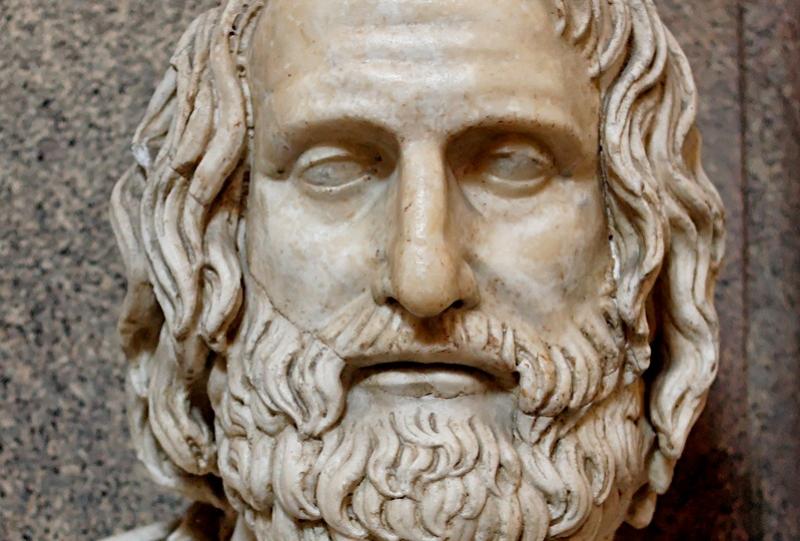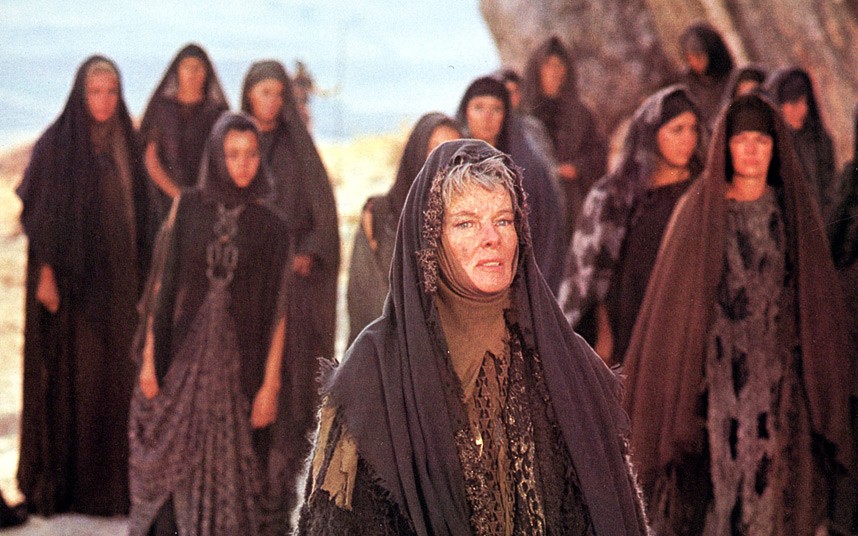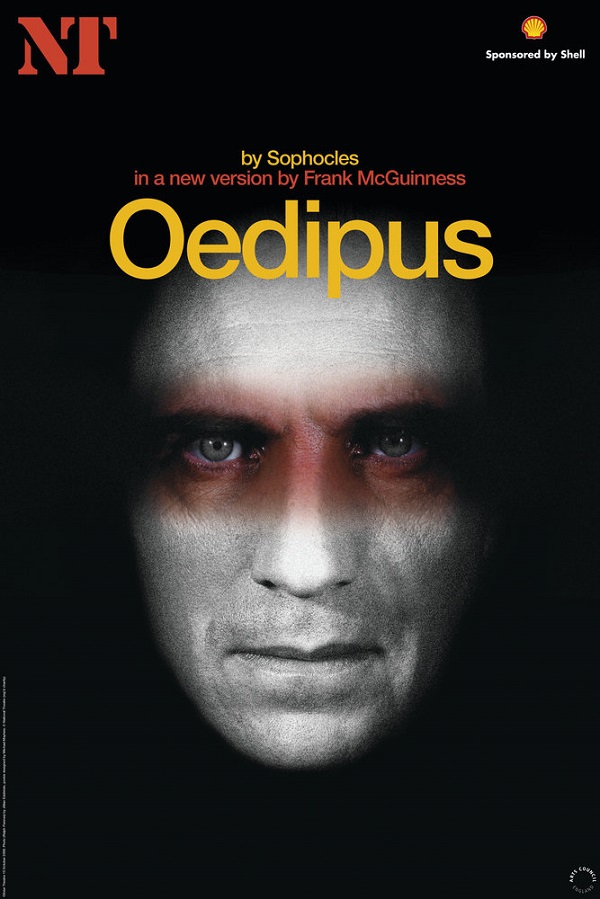Ancient Greece: The Greatest Show on Earth, BBC Four | reviews, news & interviews
Ancient Greece: The Greatest Show on Earth, BBC Four
Ancient Greece: The Greatest Show on Earth, BBC Four
The history of theatre and democracy go hand in hand

Brush up your geography and dust down your history – Dr Michael Scott is investigating the sources of Greek drama and their influence on all theatre to the present day. But he isn’t going to make it easy. The opening instalment of Ancient Greece: The Greatest Show on Earth, a three-parter, was a giddying ride out of Athens to the farthest-flung regions of Google.
His opening gambit, and indeed his conclusion in this somewhat circular tour, is that theatre and democracy emerged together, each supported by the other. Tragedy drew on earlier, real events to demonstrate, instructively, the consequences of bad judgement by flawed personalities. Comedy ridiculed the decision-makers of the day – by way of illustration, Cleon, depicted by Aristophanes as a cheating servant, who is finally brought down and resorts to selling sausages outside the city wall. This play is The Knights – although you could be forgiven for thinking it was in The Nights, because The Greatest Show on Earth is lamentably short of captions, wilfully allowing ambiguities and mishearings when a few letters on screen would make Scott’s undoubted erudition so much easier to absorb.
 Why is television so terrified of visual aids, despite its name? Any amount of plinky-plunk background music that adds nothing to anything is almost de rigueur. But just suppose we are not all completely on top of the drama festival called the Lenaia already, or the Battle of Hysiae – or, indeed, the Pelopennesian war all told – would it be dumbing down beyond the depths of The Only Way is Essex to flash up some of those terms?
Why is television so terrified of visual aids, despite its name? Any amount of plinky-plunk background music that adds nothing to anything is almost de rigueur. But just suppose we are not all completely on top of the drama festival called the Lenaia already, or the Battle of Hysiae – or, indeed, the Pelopennesian war all told – would it be dumbing down beyond the depths of The Only Way is Essex to flash up some of those terms?
Nice for Scott to stroll through a fish market to illustrate the slithery nature of some politicians and wily Cleon’s taste for fresh-caught tuna (which was considered undemocratic, for reasons unexplained). But it is scant consolation for those of us trying to get our heads around the Ancient Greek for the targets for satire (not to be confused with the satyr plays). Komedumanoi apart, there is much to mull over here, not least the harrowing clips from Michael Cacoyannis’s 1971 film of The Trojan Women, Brian Blessed looming over Vanessa Redgrave, Katharine Hepburn looking on stonily (pictured above right), in Euripides’ still shocking depiction of the siege of Troy. Audiences in fifth-century Athens would have recognised parallels with the destruction of defiant Melos in 416 (look sharp, there's a map), the men all executed, the women and children taken captive.
 Discussions with other academics take place by carefully positioned posters for modern-day productions, for example of the National Theatre’s Oedipus with Ralph Fiennes. This, presumably, to suggest that the 32 plays that survive from the 1,000 are still packing in the crowds, although there was no discussion with a director or actor from a current production, which would have made a refreshing change from Oxbridge colleagues chatting under a tree and proved that the dramas are pertinent, not museum pieces.
Discussions with other academics take place by carefully positioned posters for modern-day productions, for example of the National Theatre’s Oedipus with Ralph Fiennes. This, presumably, to suggest that the 32 plays that survive from the 1,000 are still packing in the crowds, although there was no discussion with a director or actor from a current production, which would have made a refreshing change from Oxbridge colleagues chatting under a tree and proved that the dramas are pertinent, not museum pieces.
That true democracy needs theatre and vice versa is an idea that may be explored in future episodes. It certainly stands up well at other flashpoints in history. This is a series to stick with, but have your laptop handy: if you can understand every point unaided, you’re probably in it.
rating
Explore topics
Share this article
Add comment
The future of Arts Journalism
You can stop theartsdesk.com closing!
We urgently need financing to survive. Our fundraising drive has thus far raised £49,000 but we need to reach £100,000 or we will be forced to close. Please contribute here: https://gofund.me/c3f6033d
And if you can forward this information to anyone who might assist, we’d be grateful.

Subscribe to theartsdesk.com
Thank you for continuing to read our work on theartsdesk.com. For unlimited access to every article in its entirety, including our archive of more than 15,000 pieces, we're asking for £5 per month or £40 per year. We feel it's a very good deal, and hope you do too.
To take a subscription now simply click here.
And if you're looking for that extra gift for a friend or family member, why not treat them to a theartsdesk.com gift subscription?
more TV
 Slow Horses, Series 5, Apple TV+ review - terror, trauma and impeccable comic timing
Jackson Lamb's band of MI5 misfits continues to fascinate and amuse
Slow Horses, Series 5, Apple TV+ review - terror, trauma and impeccable comic timing
Jackson Lamb's band of MI5 misfits continues to fascinate and amuse
 Coldwater, ITV1 review - horror and black comedy in the Highlands
Superb cast lights up David Ireland's cunning thriller
Coldwater, ITV1 review - horror and black comedy in the Highlands
Superb cast lights up David Ireland's cunning thriller
 Blu-ray: The Sweeney - Series One
Influential and entertaining 1970s police drama, handsomely restored
Blu-ray: The Sweeney - Series One
Influential and entertaining 1970s police drama, handsomely restored
 I Fought the Law, ITVX review - how an 800-year-old law was challenged and changed
Sheridan Smith's raw performance dominates ITV's new docudrama about injustice
I Fought the Law, ITVX review - how an 800-year-old law was challenged and changed
Sheridan Smith's raw performance dominates ITV's new docudrama about injustice
 The Paper, Sky Max review - a spinoff of the US Office worth waiting 20 years for
Perfectly judged recycling of the original's key elements, with a star turn at its heart
The Paper, Sky Max review - a spinoff of the US Office worth waiting 20 years for
Perfectly judged recycling of the original's key elements, with a star turn at its heart
 The Guest, BBC One review - be careful what you wish for
A terrific Eve Myles stars in addictive Welsh mystery
The Guest, BBC One review - be careful what you wish for
A terrific Eve Myles stars in addictive Welsh mystery
 theartsdesk Q&A: Suranne Jones on 'Hostage', power pants and politics
The star and producer talks about taking on the role of Prime Minister, wearing high heels and living in the public eye
theartsdesk Q&A: Suranne Jones on 'Hostage', power pants and politics
The star and producer talks about taking on the role of Prime Minister, wearing high heels and living in the public eye
 King & Conqueror, BBC One review - not many kicks in 1066
Turgid medieval drama leaves viewers in the dark
King & Conqueror, BBC One review - not many kicks in 1066
Turgid medieval drama leaves viewers in the dark
 Hostage, Netflix review - entente not-too-cordiale
Suranne Jones and Julie Delpy cross swords in confused political drama
Hostage, Netflix review - entente not-too-cordiale
Suranne Jones and Julie Delpy cross swords in confused political drama
 In Flight, Channel 4 review - drugs, thugs and Bulgarian gangsters
Katherine Kelly's flight attendant is battling a sea of troubles
In Flight, Channel 4 review - drugs, thugs and Bulgarian gangsters
Katherine Kelly's flight attendant is battling a sea of troubles
 Alien: Earth, Disney+ review - was this interstellar journey really necessary?
Noah Hawley's lavish sci-fi series brings Ridley Scott's monster back home
Alien: Earth, Disney+ review - was this interstellar journey really necessary?
Noah Hawley's lavish sci-fi series brings Ridley Scott's monster back home
 The Count of Monte Cristo, U&Drama review - silly telly for the silly season
Umpteenth incarnation of the Alexandre Dumas novel is no better than it should be
The Count of Monte Cristo, U&Drama review - silly telly for the silly season
Umpteenth incarnation of the Alexandre Dumas novel is no better than it should be

Comments
I thought this was a great
I really enjoyed the